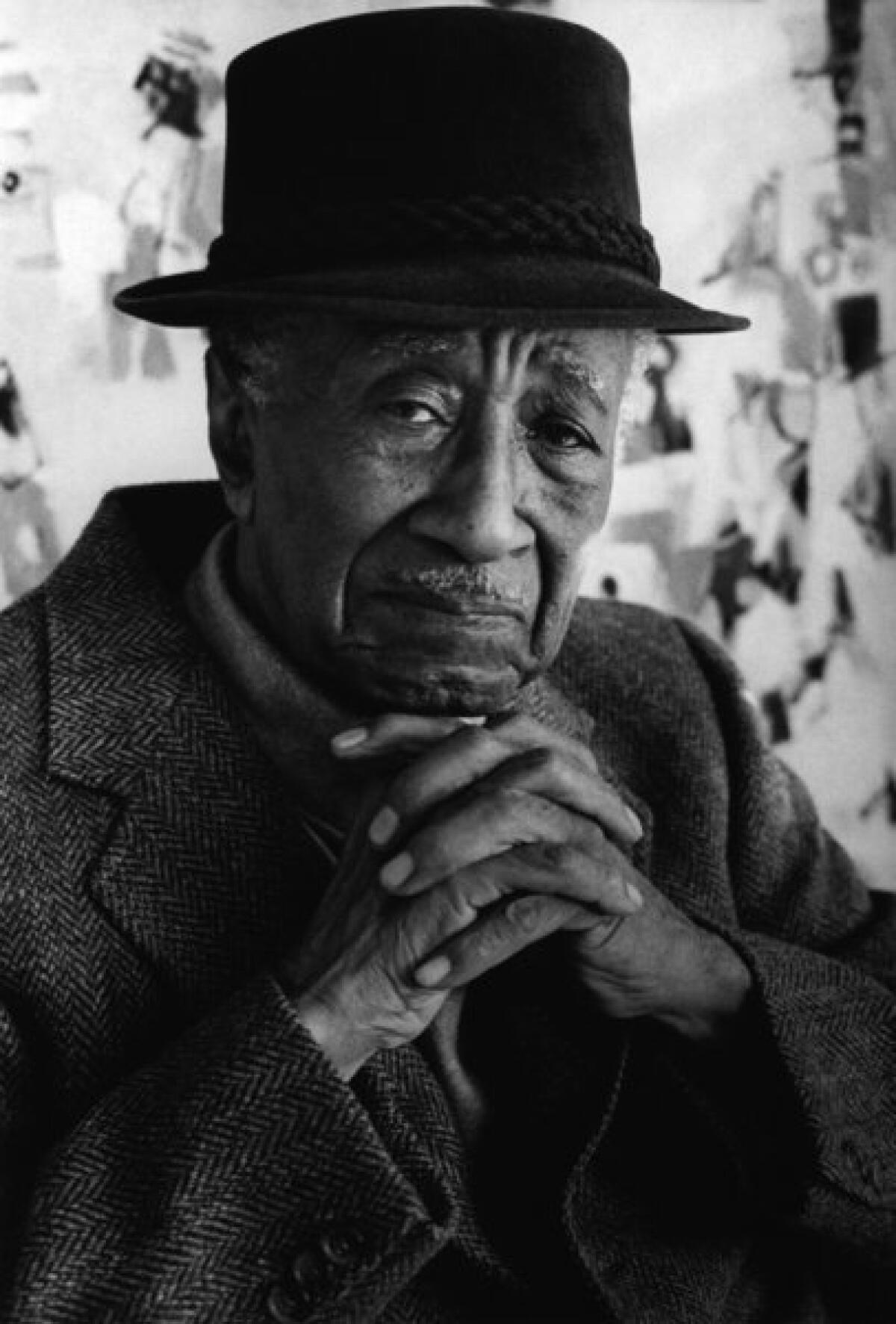Albert Murray, critic and novelist, dead at 97

- Share via
The writer Albert Murray, a maverick intellectual who challenged widespread assumptions about U.S. and African American culture, has died in New York City at age 97.
Murray, a novelist as well as essayist and literary and music critic, wrote more than a dozen books, beginning in 1970s with the seminal “The Omni-Americans: Black Experience and American Culture,” which posed a searing critique of both black separatism and white establishment ideas of the “dysfunction” of the black community.
In “The Omni-Americans” Murray argued that there “was no so-called ‘American’ culture without the Negro-American formal element and content in its marvelous blend, and no ‘black American’ culture without its white American influences and forms,” Henry Louis Gates wrote in an appreciation in The Root. “The book amounted to a searching critique of the separatist politics of the black aesthetic movement, as well as a manifesto of the blues aesthetic...”
Murray’s novels include “Train Whistle Guitar,” set in the 1920s in Alabama (Murray was born in Mobile) and “The Spyglass Tree,” set in a fictional town outside of Mobile called “Gasoline Point.” On the dust jacket of “Train Whistle Guitar,” Duke Ellington offered this blurb: “Albert Murray is a man whose learning did not interfere with understanding. An authority on soul from the days of old, he is right on right back to back and commands respect.”
The sequel to “Train Whistle Guitar” was the 1991 novel “The Spyglass Tree,” which follows the protagonist “Scooter” to Tuskegee University. Murray himself attended Tuskegee and was classmates there with Ralph Ellison.
Murray’s correspondence with Ellison between 1949 and 1960 was gathered in the 2001 book “Trading Twelves: The Selected Letters of Ralph Ellison and Albert Murray.” In a 1996 piece for the New Yorker, Gates touched upon the friendship of the two men, who had by then grown distant from each other.
“It was a great mistake to regard Murray as Ellison’s sidekick, the way many people did, but he was without question the most fervent and articulate champion of Ellison’s art,” Gates wrote.
Writing in the Virginia Quarterly Review in 1996, Sanford Pinsker compared Murray to Saul Bellow as outsider intellectual, but noted that Bellow had escaped the relative anonymity that befell Murray. “Murray is equally comfortable as a novelist, music critic, and cultural analyst,” Pinsker wrote. “Indeed, the apparently disparate interests converge into a single vision of black life as richer, more complicated, and finally of such singular importance to the very rhythms of the republic.”
Pinsker writes that Murray’s fame grew after another black writer, his protégé Stanley Crouch, wrote about him in a 1980 piece for the Village Voice titled “Chitlins at the Waldorf: The Work of Albert Murray.”
The musician and critic Ethan Iverson notes that he was at dinner with Crouch on Sunday night. “I brought up Albert Murray. Stanley did the math and concluded that Murray was 97,” Iverson wrote on his blog. “After getting home, we all learned that Murray had actually just passed away a few hours ago.”
“Albert Murray’s great observation was that all Americans are both black and white; that nobody here is racially pure no matter what neighborhood they are from,” Iverson wrote. “Murray changed tactics slightly in ‘Stomping the Blues’ from 1976, where he highlighted the primacy of the black experience in blues and jazz music. This shocked certain white jazz critics and fans, and once again, in some circles he was never forgiven.”
More to Read
Sign up for our Book Club newsletter
Get the latest news, events and more from the Los Angeles Times Book Club, and help us get L.A. reading and talking.
You may occasionally receive promotional content from the Los Angeles Times.







